2024 Audi Q6 and SQ6 E-Tron First Drive Review: E-Tron legacy

Bilbao, SPAIN — Audi has enjoyed a head start in the EV space since the first E-Tron SUV debuted in 2019 (it’s now called the Q8 E-Tron), followed by the Porsche-related E-Tron GT sedan and VW-based Q4 E-Tron SUV a few years later. Not surprisingly given its name/number, the latest addition fills the space between the two SUVs with the 2025 Audi Q6 E-Tron. Arriving stateside at the end of 2024, the Q6 follows the even-number naming convention for EVs, with odd numbers now reserved for the remaining internal combustion vehicles in the pipeline.
I hopped on a plane to Spain to put the Q6 E-Tron through its paces, as well as the spicier SQ6 E-Tron, which will be arriving at the same time. Both are built on the Premium Platform Electric (PPE) that’s shared with the new all-electric Porsche Macan. This platform utilizes an 800-volt architecture that has been thoroughly tweaked to squeeze the last bit of efficiency from the lithium-ion batteries, and you can read into the hows and whys in our Tech Deep Dive.
As far as overall specs go, both Q6 and SQ6 E-Trons draw power from a 100-kilowatt-hour battery pack in the floor, of which 94.4 kWh are usable. AC charge rates top out at 9.6 kW (many EVs manage 11 kW), but DC fast-charging has an impressive maximum of 270 kW. That’s good enough to replenish the battery from 10-80% in 21 minutes if you can find a charger that is fully functional. The DC charge port is on the driver side, but you can use an AC charger on either side, which should come in handy in your driveway/garage.

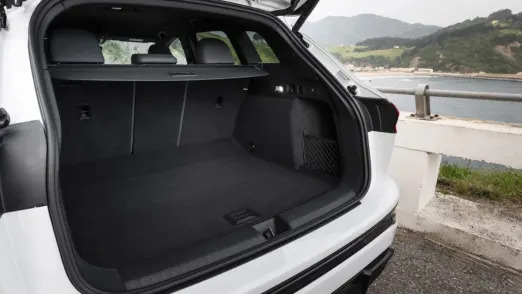
The Q6 E-Tron comes standard with two motors for all-wheel drive. Combined output is 422 horsepower under normal conditions, and up to 456 hp in launch mode. Curiously, the European versions are limited to 382 hp, but they also get the rear-drive-only model that should return additional range. It seems likely that the rear-drive model will be available in the U.S. in the future, but Audi will neither confirm nor deny those plans. Speaking of range, the Q6 Quattro that we get is estimated to return 307 miles on a single charge with the standard 19-inch wheels. In my experience, electric Audis have tended to exceed estimates by 20 or 30 miles without even trying.
The SQ6 E-Tron is good for 483 hp nominally and 509 hp in launch mode. As you’d expect, it also gets a sportier suspension and upgraded brakes. That range estimate also drops to 276 miles. Audi expects it will reach 60 miles per hour in 4.1 seconds, compared to the Q6’s 4.9-second sprint. Prices aren’t yet available, but looking at the current lineup and the existing European listings, I’d expect the Q6 E-Tron to start around $65,000 or $70,000. That could place the SQ6 in the $85,000 neighborhood.
My drive started in the Q6 E-Tron all-wheel-drive, but with the Euro-spec 382-hp output. On a mix of city, curvy and highway roads, I never missed the extra oomph we get. It’s plenty powerful when you need it, though it’ll lose in a drag race against many other EVs. No big deal, since I doubt most electric SUV shoppers are showing up to the local quarter-mile strip, anyway. The Q6 stands out from other E-Trons as it’s the first to offer one-pedal driving. Tugging the gear selector down into the B mode activates it, but those with experience in other EVs will notice that the brake regeneration is still much less aggressive. That means you might have to brush the brake pedal to keep from tapping the bumper in front of you, at least until you get used to the gentler deceleration.
More importantly, the Q6 is effortless and easy. It glides down the road silently and smoothly, yet remains confident in the curves. It will corner with more athleticism than 95% of typical drivers will ever likely desire, or about half of Autoblog readers.
The SQ6 E-Tron is definitely a better choice for spirited pilots. It feels substantially sportier in every dynamic measure, yet it doesn’t significantly degrade comfort (even in the firmer Sport mode). That was evident in the first roundabout as it carved a beautiful S-curve with noticeably less body roll. There was also less nosedive under braking and squat when getting back on the power. That’s impressive when you consider you’re tossing around almost 5,300 pounds. This is definitely the driver’s choice between the two, but it’s not as bonkers as some other higher-performing electric SUVs.
For those wanting something even spicier, an RS Q6 E-Tron is already in the works. With any luck, that top model will arrive in the following year, perhaps with some Sportback variants in tow. My wild guesstimation is hoping for 600-plus horsepower, 60 mph in 3-ish seconds, and a lower and firmer suspension. Looking at the Porsche Macan Turbo’s specs, that doesn’t seem out of the question, nor does a six-figure price tag. I’d also expect some styling and aerodynamic flourishes to distinguish the RS from the rest of its Q6 brethren.
As it stands, there’s not a whole lot to tell the Q6 and SQ6 apart, besides the badging, of course. Except for the plasticized grille, they could easily be mistaken for an internal combustion SUV. That’s a good thing for traditionalists, and it remains modern enough to please shoppers that are drawn to a sleeker aesthetic. There is a lot going on stylistically, with sharp creases over the wheels, bulging flares, and deep sculpted body panels. That’s quite a bit to pack into one vehicle, but in my head, it’s busy, not cluttered — almost like a well-organized tool chest.
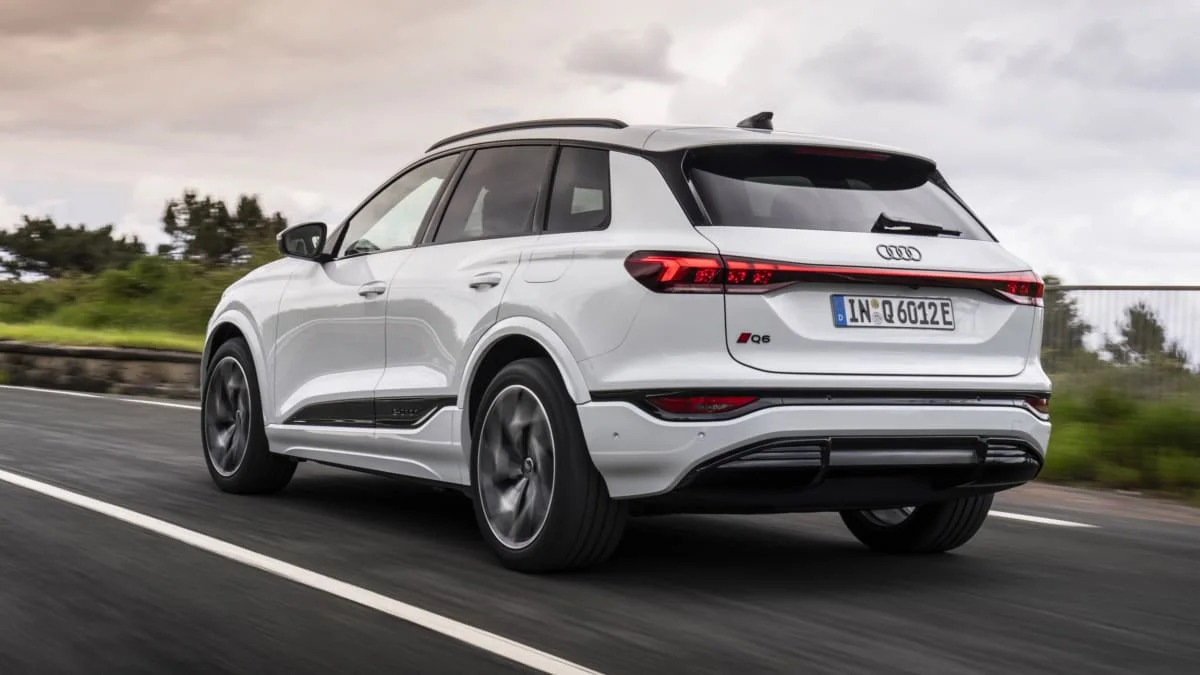
Inside, the Q6 adopts a simpler and more elemental design. A broad single panel houses both the digital instrument panel and the 14.5-inch infotainment touchscreen. There’s also an available touchscreen just for the front passenger, allowing them to play copilot with navigation help or assume the role of mobile DJ. They can also enjoy games and streaming video without distracting the driver as a privacy filter effectively blocks the on-screen content.
For the most part, it’s easy to use the infotainment system, while the navigation paired with the head-up-display deserves a special shout-out. Animated arrows and icons show up as augmented reality overlays in your forward vision, eliminating a good chunk of anxiety when driving through unfamiliar areas. Meanwhile, swarm data gathered from other vehicles’ camera systems can give the driver advanced warning of upcoming hazards. We didn’t experience any of those instances on our drive, but the potential could be huge.
The new infotainment system also benefits from improved voice controls. The Audi Assist function now features more than 800 commands, and is further enhanced with ChatGPT to handle more esoteric requests. This was especially helpful in our Euro-spec Q6, which activated the annoying mandatory speed warning chime every time we peeked past the posted speed limit. I couldn’t find the on-screen setting to disable it and reverted to saying, “Hey Audi, turn off the speed warning.” It wouldn’t disable it outright, but the system at least took me to the menu where I could turn it off myself.
The front seats are typical Audi with firm, supportive padding, but well-shaped for many hours of comfortable touring. The rear seats had plenty of headroom to accommodate my 5-foot-10 frame, and there was an abundance of legroom to stretch out. According to my 6-foot-plus passenger, he was just fine back there, too. Behind those seats, the cargo area can hold up to 30.2 cubic feet, which is larger than the Q8 E-Tron’s already generous 28.5 cubic feet. There’s some additional storage under the floor as well as another 2.2 cubic feet in the frunk, which should be enough to stash the charge cable.
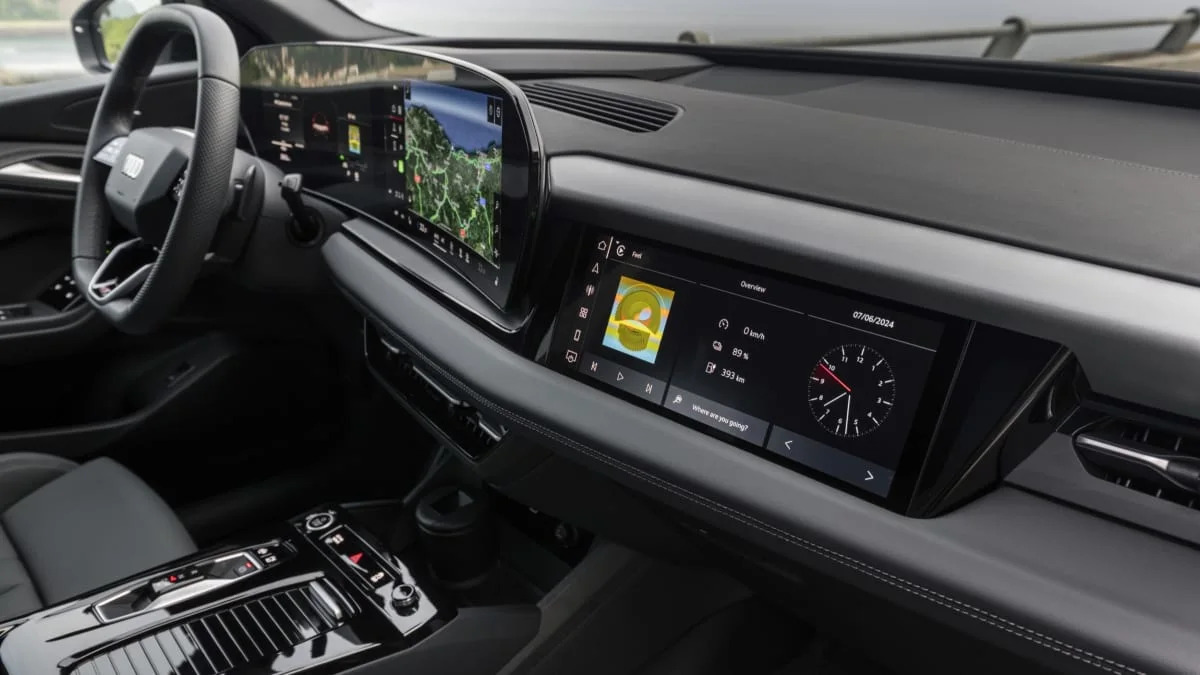
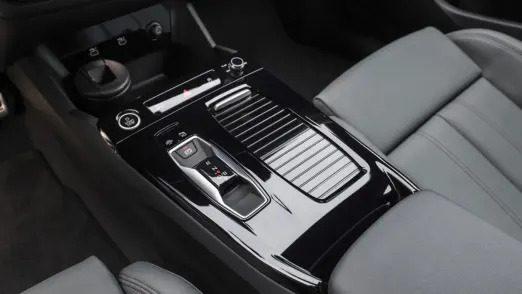
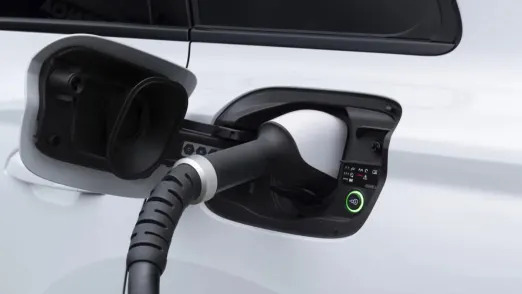
Altogether, the 2025 Audi Q6 E-Tron is a solid choice among electric SUVs, and represents a logical and welcome evolution of the company’s plans. Its closest rivals are the larger and more expensive Mercedes-Benz EQE SUV and BMW iX. I’m personally partial to the Audi since I find the styling of those rivals a bit challenging (I’m still not over the BMW’s grille). Objectively, the Q6 and SQ6 drive great, expertly balance comfort and performance, and give shoppers a more accessible pathway to luxury electric SUVs.
I’m struggling to find any significant faults, which is rare for me, but there’s also nothing that truly blew me away. With any luck, the RS Q6 E-Tron will deliver those thrills, but until then the Q6 and SQ6 are supremely competent and enjoyable choices that will appeal to a wide range of shoppers. In essence, I think of them as a Porsche for the rest of us.



